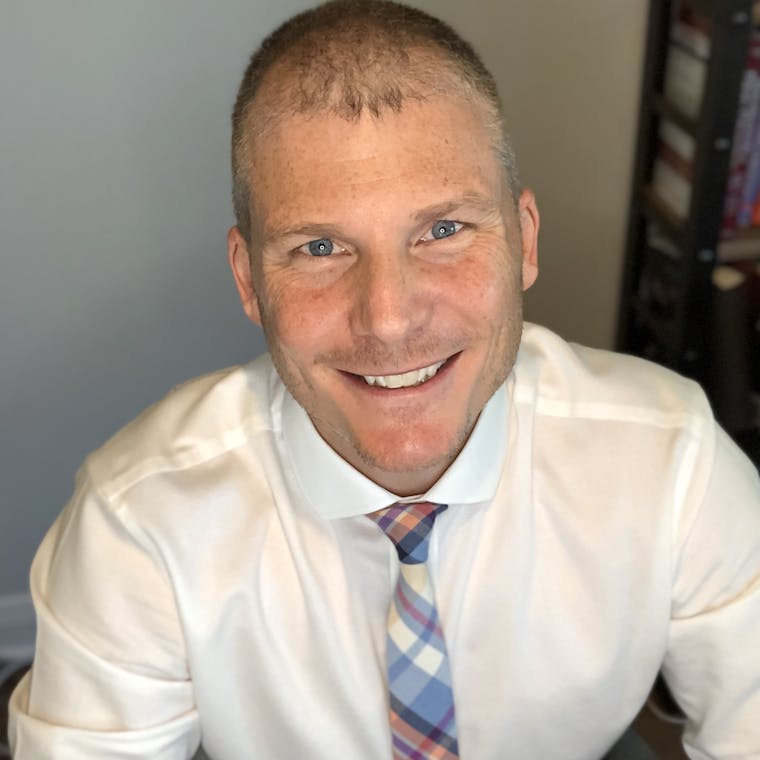Catering to Diverse Learning Styles in Medical Education
by Jonathan Bruner, D.O., Executive Director of Institutional Medical Programs | October 29, 2024

The science of learning is an ever-growing field filled with great strategies and strong evidence to support them. Here at Kaplan, we have our own Learning Science team that works alongside our product teams to ensure we provide the best ways to educate our students. At Kaplan Medical, we take it a few steps further to ensure we meet each learner's needs. One of the specific ways this is evident is with the development of our new USMLE Step 1 Live Online Course. As part of that initiative, we utilized many different learning strategies, including research on effective lecturing from the Dartmouth Center for the Advancement of Learning.1 This includes addressing areas like why lecture, how to design an effective lecture, and how to address student and faculty concerns within the course.
Creating Purposeful Learning Experiences
When starting out, it is always important to determine a “why” and maintain focus on that throughout the content development. Some of the key components we integrate into our “why” include:
- Providing context
- Presenting the most up-to-date material
- Modeling thought processes
- Ensuring we clarify confusing topics
As we’re building the content, we make sure each section has a purpose and that the purpose fits within the overall topics. We are also mindful of, among many other things, how the content will be engaging for our students and presented in a meaningful way. This helps keep our learners excited and able to retain as much of the information as possible. Additionally, when building all of our successful products we keep in mind that our learners, while it is a spectrum, fall into one of three categories: The Listener, The Observer, or The Strategizer.
The Listener
These students learn best by hearing information and communicating for clarification. They tend to have a very good memory for hearing things and enjoy interaction. Areas of struggle include remembering what they read and taking notes. The Listener will seek out resources that they can hear and preferably engage in a way that allows them to obtain feedback for learning.
The Observer
These students learn best by seeing information and observing a presenter. To obtain clarification, they like to write things out and review books along with other course materials. They tend to have very good retention when watching videos. Areas of struggle can include studying in silence. The Observer will seek out resources that are visually stimulating and prefer to engage in a way that allows them to review those resources for any clarification.
The Strategizer
These students learn best when presented with materials and personalizing them. They have a strong ability to improve upon self-knowledge issues and remain goal-oriented. They tend to have very good retention with question practice. These learners tend to prefer more concise materials. The Strategizer will seek out review materials that are quickly and easily accessible and prefer to engage in a way that allows them the flexibility to create their own schedules.
Tailored Resources for Every Learner
Kaplan Medical offers a variety of product options to meet the needs of our different learners. Our product suite includes first-in-class Books, Qbanks, Videos, and Live Online instruction. With multiple, concise review books broken down into relevant subjects and thousands of exam-like questions in our Qbank, these two offerings are ideal for all learning types.
Particularly, The Strategizer does well with this option as they are able to sift and synthesize through the information in all the ways that they find to be most effective. Next, we offer our newly updated Videos that provide hours of in-depth, additional content that builds on our Books and Qbanks to provide a more engaging experience. Complete with pre and post-video assessments, this is an ideal offering for The Observer as it maximizes their retention abilities.
Saving our best offering for last, is our brand new Live Online offering. This allows for 6 weeks of intensive review that starts with 4 weeks of covering all of the high-yield topics and then reinforces them while preparing you for the exam through a 2-week question-based review series. All classes are taught by Kaplan’s highly-rated faculty and allow The Listener learners the ability to hear and interact through our Kaplan Zoom room.
No matter where you fall in the learning types, our number one priority is supporting each student on their journey to becoming a physician. Let us help make the journey a little easier.
References
1Dartmouth Center for the Advancement of Learning. (2024). Effective Lecturing. https://dcal.dartmouth.edu/resources/teaching-methods/effective-lecturing

I was born and raised in the suburbs of Detroit, Michigan, and I am a third-generation osteopathic physician. My career path has been most influenced by an interest in both science and education. I graduated from the University of Michigan with a bachelor of science degree, major in biology and minor in chemistry, from the School of Education. Becoming a physician was the natural intersection of my interests, so I went on to graduate from the Michigan State University College of Osteopathic Medicine before completing my residency in Osteopathic Neuromusculoskeletal Medicine (ONMM) there as well. I practiced and worked as an associate professor for 18 years and also worked as a residency director for two ONMM programs before joining Kaplan.
See more posts by Jonathan Bruner, D.O., Executive Director of Institutional Medical Programs
